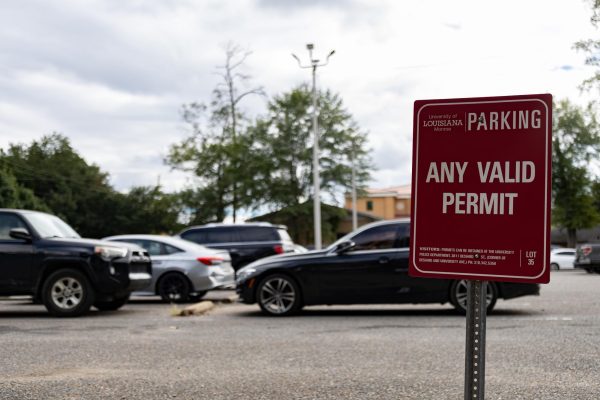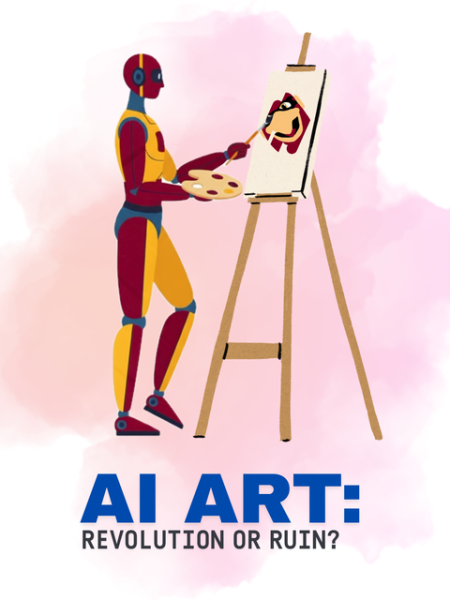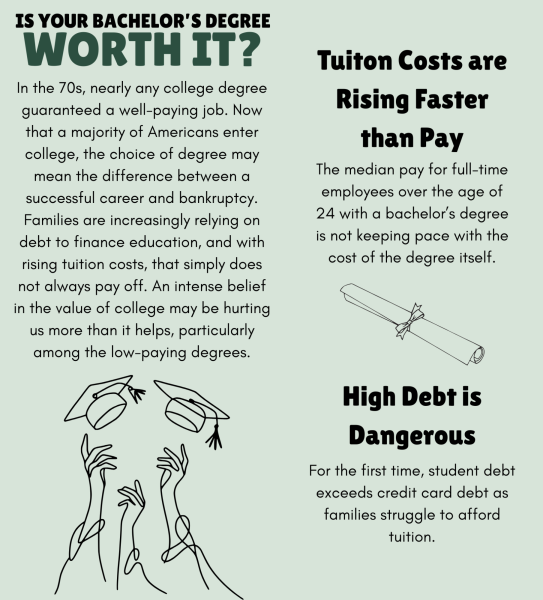Cochlear implants are not needed in order to achieve success in life
My sign language professor asked us if we would install a cochlear implant on our children if they were deaf. I expected a couple of students to raise their hands, saying that they would.
However, I didn’t expect shallow, insulting and discriminatory reasoning. When my professor told us that cochlear implants were very controversial in the deaf community, I didn’t think too much of it until a tense debate formed between my classmates and me.
One classmate said they wanted their kids to have the best shot at being successful.
Another classmate said they wouldn’t even tell their child they were deaf; that they would simply give them the cochlear implant and act as though they had never been deaf.
That isn’t fair. Deaf people shouldn’t have to get cochlear implants. People capable of hearing should learn American Sign Language (ASL) and become more accepting of the deaf people and the culture they’ve come to build.
Not only does the cost of a cochlear implant exceed $40,000, but only certain deaf children and adults qualify. Plus, getting an implant won’t guarantee perfect hearing or speech.
According to John Hopkins School of Medicine, some patients said it sounds like people are “talking with marbles in their mouth,” or they won’t hear anything at all. They will just feel the stimulation.
There are also risks during and after the surgery such as fluid leaking around your brain. It’s one thing if deafness caused death, but it doesn’t. To me, it seems like an unnecessary risk to take.
And for those who believe that installing a cochlear implant will ensure an “equal” chance of being successful, I believe that’s false.
People who are disability-free still aren’t guaranteed a fair chance of being successful. Even if you could hear, society would find a way to chip away at a person’s hard work.
Plus, there are countless successful deaf people with good jobs in this country. Many are even more successful than hearing people.
I guess it’s easier for me to feel this way because I’m an African-American.
This might be a stretch, but because of my race, I’ve learned what it was like for people like me to be out-casted and treated differently to the point where African-Americans had to come together to form a culture of their own. I would think deaf culture is similar.
When I watched the Academy Award-winning documentary “Sound and Fury,” some of the deaf cast members said they grew up not having friends or having people treat them differently just because they were deaf.
Even their education lacks. In the documentary, some of the deaf high schools “turn out students that only read at a fourth-grade level.” It shouldn’t have to be like this.
ASL was created to give not only deaf people a way to communicate, but to also give hearing people a way to communicate with the deaf.
While there is a lack of recent research on the extent of ASL use in the United States, it’s estimated “fewer than one-half million people in the United States use ASL.” Yet, hearing loss affects 27.7 million people.
Now, why do hearing people think it is more acceptable for deaf people to surgically change themselves to communicate, when ASL helps build the bridge of communication?
Hearing people should make an effort to learn ASL and accept and embrace the deaf culture.





Cassandra Fynes • Jul 3, 2017 at 4:01 am
I don’t know what exactly they are trying to say here hence hearing is a wonderful blessing. More than 80% the whole kit and caboodle related to any field call for perfect hearing. And millions of people are unable to hear a single word because of deafness. That’s why cochlear implant is made that means it can play a role to achieve success in life for deaf folks. http://www.fynesaudiology.com/
Gina • Apr 27, 2017 at 1:18 pm
Controversy exists due to ignorance and lack of education on said topic. That is all.
Since this is an opinion piece, it means nothing to me. I’d like to share my experience growing up in deaf culture, with deaf parents and deaf siblings and the fact that my deaf parents made a choice for me which I am forever grateful. I currently have a HA and a CI and yes, it has made my life so much easier. Needed? I chose to have a CI because I felt I needed it. Maybe the author feels differently, she can only speak for herself and no one else.
Tom Harrold • Apr 27, 2017 at 11:43 am
One small correction to my reply – Heather is at Harvard Law rather than Yale Law!
Tom Harrold • Apr 27, 2017 at 10:36 am
I read with great interest Ms. Johnson’s opinion regarding cochlear implants not being needed to achieve success in life. I can’t tell from the article but am wondering if Ms. Johnson is Deaf herself? Of course cochlear implants are not needed to be successful. But cochlear implants can make things so much easier for the recipients. I know young men and women with cochlear implants who are doing beautifully with them. They are Peace Corps volunteers, actors, musicians, scientists, engineers, lawyers, business people, teachers. They attend college, have jobs and live their lives. They do not need sign language interpreters to communicate with others; they don’t need any special accommodations to talk on the phone, order food at a restaurant, call in for a pizza, call to schedule appointments. It would seem the class she is taking is taught by someone who is extremely biased towards cochlear implants. It would be wonderful if everyone knew American Sign Language in addition to English. But the reality is that ASL is utilized by a very small percentage of the population. A note about the documentary Sound and Fury. The OP may want to do a bit of research and watch the follow-up documentary on the same family where the daughter, Heather, receives a cochlear implant as well as her mother. Heather Artinian is an amazing young woman – she’s currently studying at Yale law school. Could she have done that without a cochlear implant? We will never know. Bottom line, it’s a choice that many, many deaf folks have chosen and it’s a choice that has enhanced their lives.